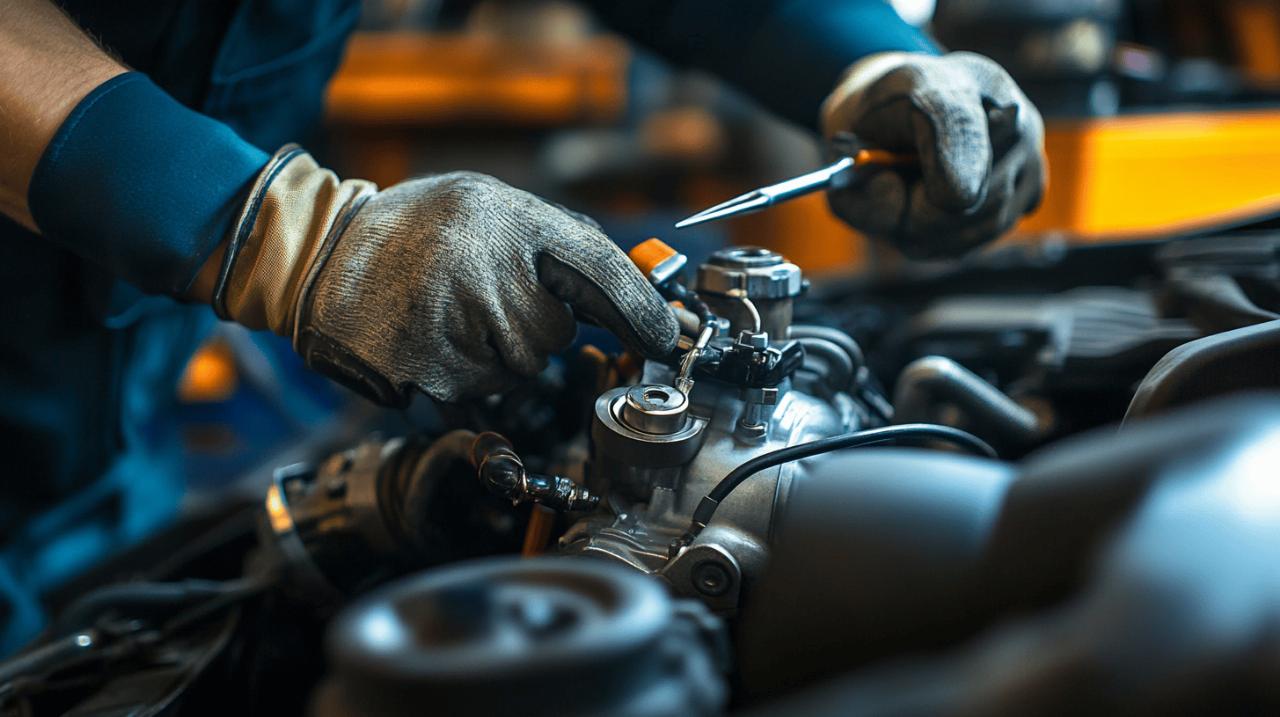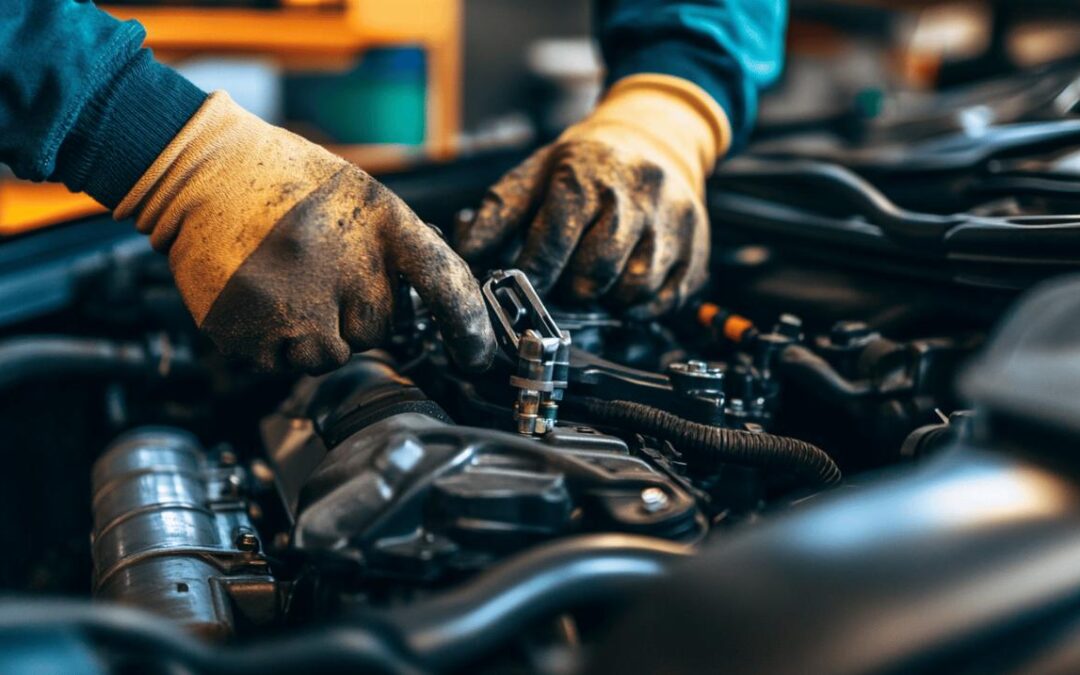Turbochargers have become increasingly common in modern vehicles, enhancing engine performance and fuel efficiency. However, these powerful components require proper maintenance to prevent issues like the dreaded whistling noise that can indicate serious problems. Auto Service Gall brings you comprehensive guidance on keeping your turbocharger in optimal condition.
The importance of proper oil maintenance
The lifeblood of any turbocharger system is proper lubrication. Turbochargers operate at extremely high speeds and temperatures, making oil quality and consistency crucial to their longevity and performance. Without adequate lubrication, the delicate components within your turbocharger can wear prematurely, leading to characteristic whistling sounds that often precede complete failure.
Selecting the Right Oil Grade for Your Turbocharged Engine
Not all engine oils are created equal when it comes to turbocharged applications. Turbocharged engines typically require synthetic oils with specific viscosity ratings that can withstand higher operating temperatures. These specialised formulations help protect the fast-spinning turbine wheels and bearings that might otherwise suffer from oil breakdown under extreme conditions. Using the manufacturer-recommended oil grade is essential for maintaining optimal performance and preventing those worrying turbo noises that might require expensive turbo repair services later.
Creating and Following a Strict Service Schedule
Consistency is key when maintaining a turbocharged engine. Establishing and adhering to a regular service schedule ensures your engine receives fresh oil before the existing lubricant degrades. Most manufacturers recommend more frequent oil changes for turbocharged vehicles compared to naturally aspirated engines. This proactive approach to maintenance significantly reduces the risk of bearing wear that commonly leads to whistling sounds and eventual turbocharger failure.
Air filter care and replacement
The air filter serves as the first line of defence for your turbocharger, preventing harmful particles from entering and potentially damaging the precision components. Even minor contamination can cause imbalances in the turbo wheel, resulting in noise and reduced performance over time.
Signs your air filter needs changing
Decreased engine performance, reduced fuel efficiency, and unusual engine sounds are common indicators that your air filter may be clogged. Regular visual inspections can reveal excessive dirt accumulation or discolouration that signals replacement is necessary. Replacing your air filter represents a small investment that can prevent costly turbocharger damage and maintain optimal boost pressure throughout your driving experience.

How dirty air filters impact turbocharger performance
When air filters become clogged, the turbocharger must work harder to draw in sufficient air, creating strain on the system. This increased effort can lead to premature wear on bearings and turbine blades, often manifesting as whistling noises during acceleration. Clean filters ensure proper airflow, maintaining the delicate balance needed for efficient turbocharger operation and preventing the contamination that can damage internal components.
Inspecting and maintaining turbo components
The complex network of pipes, hoses, and connections that make up your turbocharger system requires regular inspection to identify potential issues before they escalate. Small leaks or damaged connections often create the distinctive whistling sounds that indicate boost pressure is escaping.
Common leak points in turbocharger systems
Boost leaks frequently occur at connection points between the turbocharger and intercooler, or between the intercooler and intake manifold. Worn sealing rings, deteriorated gaskets, and loose clamps are typical culprits. These leaks not only create noticeable whistling noises but also reduce engine power and efficiency. Regular inspections of all connection points can identify these issues before they worsen and affect overall performance.
Prompt repair strategies for damaged connections
When leaks are discovered, immediate action prevents further damage to your turbocharger system. Always replace sealing rings when reassembling components and use new metal gaskets for exhaust connections. Ensuring proper torque specifications are followed during installation prevents future leaks. For complex issues beyond basic maintenance, seeking assistance from specialists like Essex Turbos can provide cost-effective solutions through their reconditioned turbos and repair services.
Proper engine operation techniques
How you operate your turbocharged vehicle significantly impacts the longevity of its components. Proper driving habits prevent excessive stress on the turbocharger system and reduce the likelihood of developing those concerning whistling noises.
The warm-up process for turbocharged vehicles
Allowing your engine to reach operating temperature before demanding full power ensures proper oil circulation throughout the turbocharger. Cold oil flows more slowly and provides inadequate lubrication to the high-speed bearings within the turbo. A gentle warm-up period allows oil pressure to build and temperatures to stabilise, protecting these critical components from premature wear that often leads to turbocharger noise.
Cool-down procedures after high-performance driving
Equally important is allowing your turbocharger to cool down after periods of high-performance driving. Shutting off your engine immediately after hard driving can cause oil to cook inside the turbo bearings, forming deposits that restrict movement and eventually cause damage. Idling for a minute or two allows temperatures to decrease gradually, preserving the internal components and extending turbocharger life.
Diagnosing turbocharger issues early
Developing an ear for the sounds your vehicle makes can help identify potential turbocharger issues before they escalate into serious problems. Different sounds often indicate specific issues that require attention.
Identifying different turbo noise signatures
Whistling noises typically suggest boost leaks or issues with the wastegate, while rattling might indicate worn bearings or damaged turbine blades. Hissing sounds often point to vacuum leaks in the intake system. Learning to distinguish between these different noise signatures allows you to communicate more effectively with technicians and address the specific issue at hand rather than pursuing unnecessary repairs.
When to seek professional assessment
While basic maintenance can be performed by enthusiastic owners, certain issues require professional diagnosis and repair. Persistent whistling despite addressing common causes, visible damage to turbocharger components, or significant performance issues warrant expert attention. Professional technicians possess the specialised tools and expertise needed to accurately diagnose complex turbocharger issues and recommend appropriate solutions, potentially saving you from costly complete system replacements.

